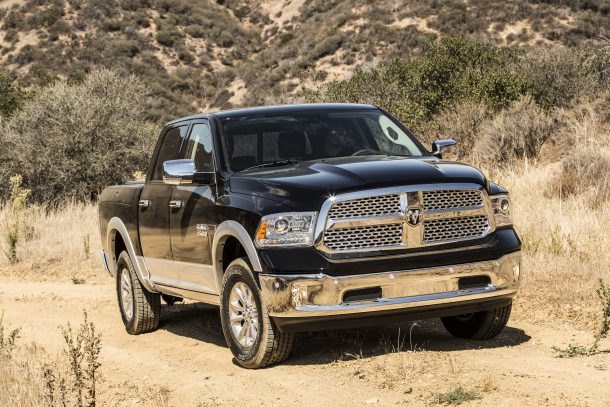Fiat Chrysler Hit With Subpoenas as Feds, States Demand EcoDiesel Answers

The fallout from the Environmental Protection Agency’s call-out of Fiat Chrysler Automobiles over excess EcoDiesel emissions has now landed in the company’s lap. Or, more specifically, in its mailbox.
In a filing to the Securities and Exchange Commission, FCA revealed it’s been hit with subpoenas from state and federal authorities, including the SEC, Reuters reports.
The need for answers comes after the EPA accused the automaker of failing to declare eight auxiliary emissions control devices installed on its 3.0-liter diesel V6, which the regulator claims emits illegally high levels of emissions. That engine found a home in roughly 104,000 Ram 1500s and Jeep Grand Cherokees.
FCA’s annual filing states the automaker has “received various inquiries, subpoenas and requests for information from a number of governmental authorities, including the U.S. Department of Justice, the SEC and several states’ attorneys general.”
“We are investigating these matters and we intend to cooperate with all valid governmental requests,” the company added.
On January 12, Cynthia Giles, assistant administrator of the EPA, said that failing to declare the emissions control devices constituted a violation of the Clean Air Act. Giles demanded that FCA “demonstrate why we shouldn’t conclude that these (devices) are defeat devices” — a reference to Volkswagen’s infamous emissions-cheating software.
While the proliferation of FCA’s two 3.0-liter diesel models pales next to VW’s oil burners, the EPA’s penalty would still be steep. FCA would have to pay a $4.6 billion fine if found guilty of violating the Act. That could prove disastrous for an automaker already low on cash.
Resolving this controversy “could have a material adverse effect on our financial position, results of operations or cash flows and may adversely affect our reputation with consumers, which may negatively impact demand for our vehicles,” FCA wrote in its filing.
Apparently, the groundwork for the EPA’s bombshell accusation — and subsequent Justice Department investigation — had been in the works for some time. Sources told Reuters that the Justice Department received a referral from the EPA last July.
[Image: Fiat Chrysler Automobiles]

More by Steph Willems
Latest Car Reviews
Read moreLatest Product Reviews
Read moreRecent Comments
- FreedMike Ah, Chesterfield Mall...my old teenage stomping grounds. Bummer what happened to it, that's for sure. But that's what happens when the city council approves not one, but two "premium" outlet malls right down the road to be built. That killed this mall dead.And in case anyone's interested...yes, Teslas and other EVs are very popular in that neighborhood.
- MaintenanceCosts Subarus can be durable, but they are going to demand more frequent and expensive regular maintenance than your typical Honda or Toyota. I suspect for a lot of third and fourth owners that means the economic equation favors scrapping them a bit earlier.
- Bd2 Hyundai and Kia have zero problem selling their respective Ioniq and EV models at or above MSRP. EV9 is the top seller in it's segment.
- Redapple2 366,000 miles is no small thing. The owners and the manufacturer: tip o the cap.
- ToolGuy The 6 million residents of Missouri purchase twice as many Tesla vehicles as do the 5 million residents of Alabama. So now you know.


































Comments
Join the conversation
Yeah, VW Group was able to afford the $18 billion---or whatever the number was; I don't think FCA could swing $5 billion at a time when they're already delaying R&D expenditures on their most-popular models.
Given the problems that major manufacturers VW and FCA, are having, and probably more to come, with their Diesel engines not meeting emission standards, perhaps the standards are set too high and are not realistic. Maybe we should look more closely at them instead of blaming the car companies for not meeting the unachievable.